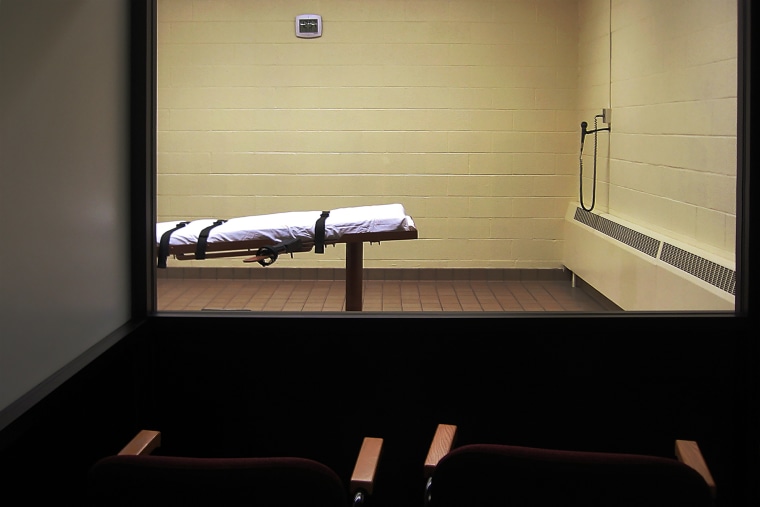It started as little more than a rumor. A few weeks ago, Axios had a report that Donald Trump has privately expressed admiration for how Singapore deals with drug-trafficking offenses: the government executes those found guilty. The American president, the report said, has been "telling friends for months" that Singapore's model is effective.
Trump kicked things up a notch during a recent White House summit on the opioid crisis, reminding attendees that countries that kill drug dealers "have much less of a drug problem than we do."
Now he's taking this pitch to the public.
President Trump on Saturday again called for enacting the death penalty for drug dealers during a rally meant to bolster a struggling GOP candidate for a U.S. House seat here. [...]Trump said that allowing prosecutors to seek the death penalty for drug dealers -- an idea he said he got from Chinese President Xi Jinping -- is "a discussion we have to start thinking about. I don't know if this country's ready for it."
So, Donald Trump believes that to address the drug problem, the American government should probably kill more American citizens. What's more, Trump's thinking on criminal justice issues has apparently been shaped by China -- a country led by an unelected president who expects to serve for life, in a country that isn't exactly known for serving as a model on civil liberties.
For those concerned about Trump's authoritarian tendencies, this won't help.
Worse, whether Trump understands this or not, China still has a serious drug problem of its own, harsh criminal penalties notwithstanding, which is pretty much the opposite of what the Republican told his Pennsylvania audience over the weekend.
As we discussed a couple of weeks ago, the problem isn't just the president's fondness for solving problems by killing people. While the White House tries to craft some kind of policy agenda to deal with the nation’s opioid crisis, the fact that Trump seems to prefer “very tough penalties” also tells us something important about what we can expect from the administration. Politico recently reported:
“It makes us all very nervous” that the U.S. could move back to a “penal-first approach,” said Andrew Kessler, who leads Slingshot Solutions, a consulting firm specializing in behavioral health policy that advocates for substance abuse treatment and prevention. “I have no love for high-level traffickers or cartels, but a very high percentage of people who sell drugs do it to support their own habit.”He and others said the government would be better offer treating people for addiction than imprisoning them.“We have done the experiment with extreme mass incarceration to shrink the drug market and it failed,” said Mark Kleiman, who leads the crime and justice program at New York University’s Marron Institute of Urban Management. “Between 1980 and today, the number of drug dealers behind bars has gone up by a factor of 30 and the prices of heroin and cocaine have fallen more than 90 percent. So the problem with putting drug dealers in prison is there is another drug dealer in there to take his place.”
Trump believes the best solution is a solution he can characterize as “tough.” For those interested in addressing a major challenge in effective and constructive ways, this isn’t at all encouraging.
